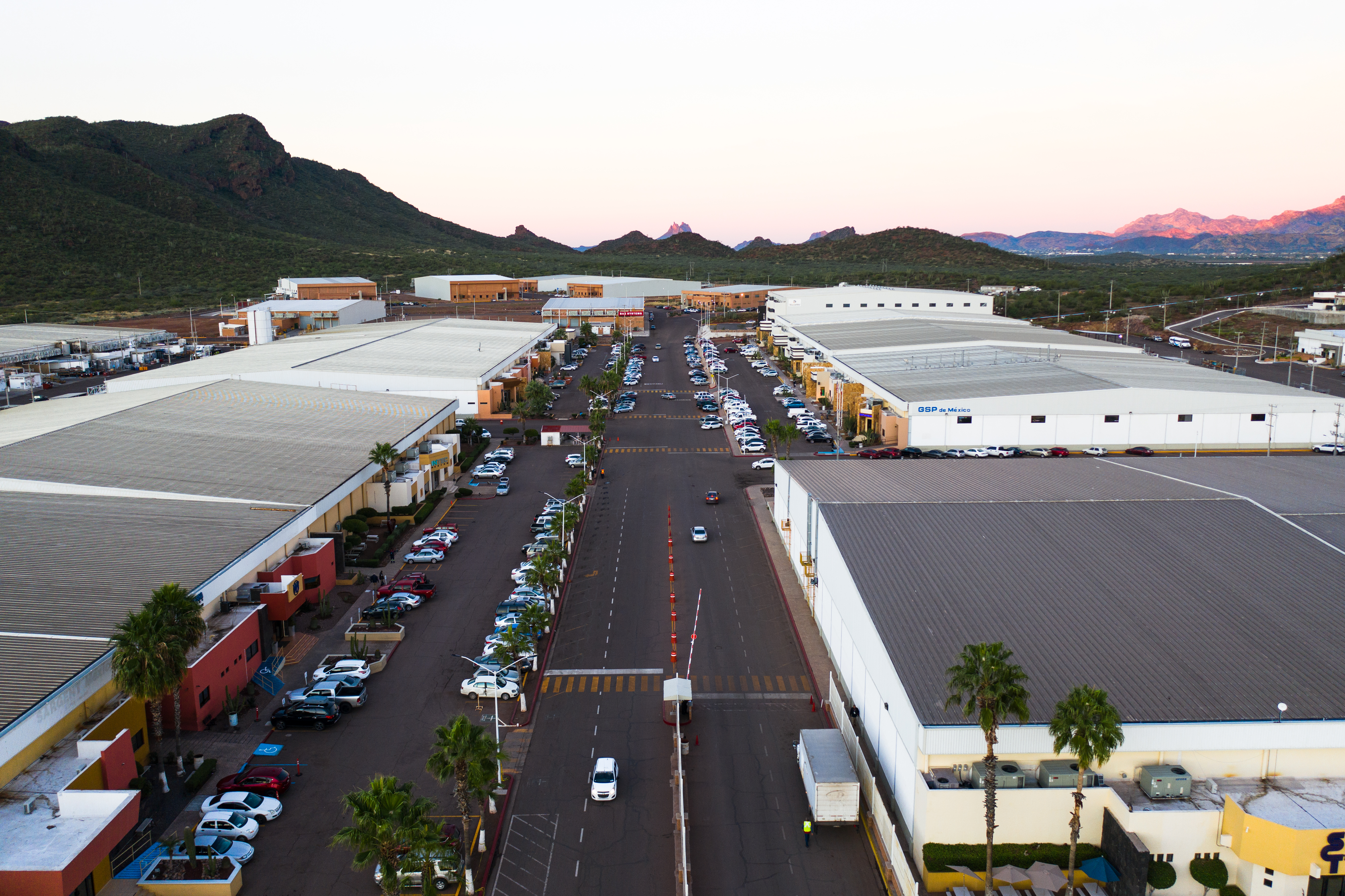It's time to visit potential manufacturing locations in Mexico. Your schedule is filled with places to visit. You’re landing at an airport close to the U.S. – Mexico border, and you and your colleagues thin that driving might be the right way to go.
It's rental car time.
If you, your assistant or your travel department have done the homework, the pickup, drop-off and budgeting for a vehicle should require little more effort than, say, renting in Tucson and dropping in Phoenix. But the manufacturing executive caught off-guard by rules and policies in the U.S. and Mexico may wind up thinking that it'd have been cheaper to buy a new vehicle than having dealt with a rental company.
First comes the decision of where to rent.
Since many Mexican manufacturing, or “maquiladora,” plants are located in proximity to border areas, a US or Mexican manufacturing executive may often find it equidistant to rent from a company in, say El Paso, Ciudád Juárez, Saltillo, Hermosillo or Chihuahua. If that's the case, it's generally a better deal to rent in the United States and pay your rental car company's mandatory Mexican insurance fee, generally $25 a day. U.S. rental firms are more likely to offer unlimited mileage, a greater variety of vehicles and more amenities in the vehicles than a Mexican rental car company. That is true even when the consumer is choosing between Avis in the U.S. or Avis in Mexico. Generally, daily rental car rates in cities such as San Diego, Tucson, El Paso or McAllen are around $25-30 a day.
Mexican airports and in-town locations are filled with most of the brands that Americans find familiar -- Hertz, Avis, Dollar (Eurocar), Thrifty, Alamo and National. There are a number of smaller, regional Mexican companies. As in the U.S., airport locations are usually half or one-third the price of in-city rentals. One of the upsides of renting a car in Mexico is that airport taxes, which often reach 30 percent of U.S. costs, are almost non-existent. (The reason for that is that Mexican local governments do not have taxing authority.) A Mexican value added tax (VAT) of 16 percent in the interior and 11 percent in border areas is applied to rental cars but is often included in the overall pricing.
One of the unique aspects of renting a car in Mexico in order to visit a manufacturing location there is the presence of models one never sees in the U.S. Sometimes, the models are sub-compacts made by Nissan, Toyta or Mitsubishi. Some rental firms offer Peugeots, Renaults, Fiats and SEAT vehicles, which are either not available or scarce in the United States. Another benefit, or drawback, depending on one's tastes: Mexican auto rental companies frequently offer four- and five-speed manual vehicles. By U.S. standards, gas prices are not high -- they are currently on par with average U.S. prices -- but for Mexican travelers, the fuel economy of vehicles is often the difference between being able to afford a car or having a motorcycle (or even a bicycle).
Websites offer the best deal and fastest method of renting. To use them, however, you many need some bi-lingual help.
The Mexcian site, www.despegar.com.mx, is fast and tends to offer more variety and lesser prices (though one has to calculate pesos) than traditional sites, www.travelocity.com.mx or www.expedia.mx
The key to saving the company’s budget on a car rental for manufacturing executives visiting Mexico is in paying attention to the extras. Not all U.S. companies allow their vehicles to go to Mexico, but those that do require renters to pay the $25-$30 day charge for insurance. That quantity covers damage to one's vehicle and, often, just a small amount toward repairs on other vehicles and medical expenses. An American-issued credit card will not cover the damage collision waiver on rentals to Mexico. Nor will it serve as a "bond" guarantee as do many cards issued in the United States.
Though it is against the rules of the U.S. rental car companies, one can insure a car by purchasing Mexican auto insurance --- at considerably less than the $25 or $30 figure --- in Mexico, itself. But do that at your own risk. The renter who purchases Mexican insurance in the U.S. will see his complaint adjuciated in U.S. courts, whereas the party who purchases an identical policy in Mexico will find any complaint heard by local Mexican courts. The latter are notoriously slow and inefficient. Well-known brands of Mexican insurance include Qualitas, ABA, ING, GNP, ACE, MDI, Mapfre Tepeyac and Chartis.
If it's easier to get to your Mexican manufacturing plant by renting at a Mexican airport, or in a city itself, there are a number of factors to bear in mind. Mexican car rental companies make purchase of damage and injury insurance mandatory for foreigners unless they can show proof of insurance valid in the country. A few U.S. companies offer just such policies, but they are few and often cover accidents only within the "free zone" of Mexico, which is generally the northernmost 21 kilometers of the country but does include all of Baja California and Baja California Sur, whose peninsula extends 775 miles south of California.
Car rental companies in Mexico tie up much more of your credit than the same companies do in the U.S. Whereas American companies frequently tie up $250 to $500 on a card, Mexican companies routinely put a "hold" on as much as $3,000. That means that charges on a card at restaurants or hotels may be declined before a car is returned and final charges made. Additional driver fees are generally about the same amount.
One of the most misunderstood aspects of Mexican law revolves around being jailed as the result of a traffic accident. In theory, this is true, but the reason motorists are jailed is not because of a punishment, but because jailing serves as a temporary (usually a matter of hours) method of guaranteeing that a person will not flee a state. This is because exchange of information and cooperation between states in Mexico is difficult, at best, and often non-existent. It is unlikely to happen in the first place, but if it does, it will be resolved as soon as a vehicle renter demonstrates that he or she is solvent. (Of course, like the U.S., there are criminal charges for driving while intoxicated and reckless driving. In these cases, Americans are to be treated the same as residents.)
For those companies with Mexican manufacturing operations, that provide vehicles to employees, a visit to Mexico is easier, yet. An annual policy on a vehicle, which will cover numerous drivers, rarely exceeds $500 annually, a figure that takes into account a $500 deductible and covers damage to other vehicles and a minimum of medical coverage to employees, as well as third-parties. For entry into Mexico of a company vehicle, a notarized letter from a compay officer is required, along with a notarized letter of permission from any lienholder.
Subscribe
Sign up and stay informed with tips, updates, and best practices for manufacturing in Mexico.





